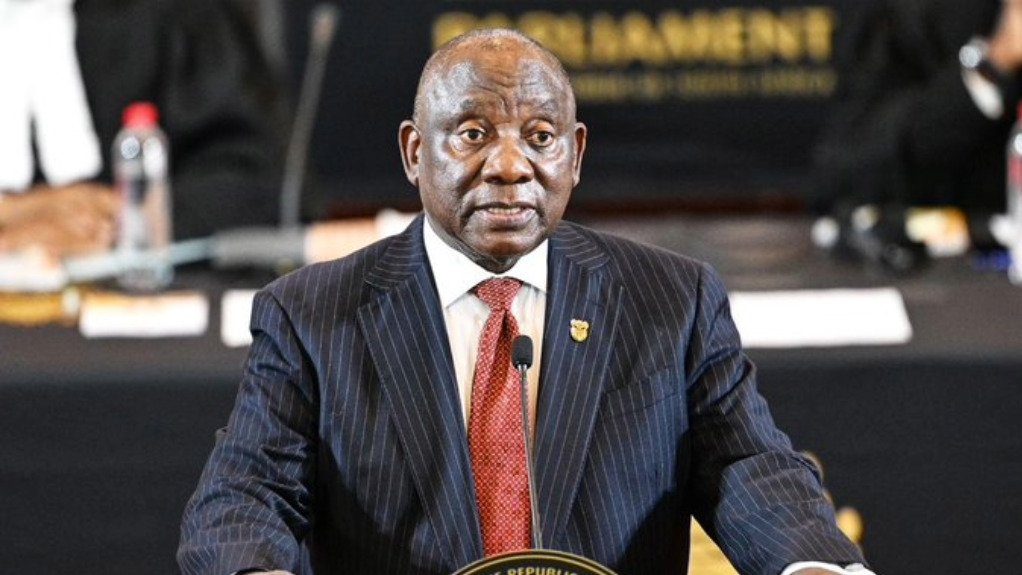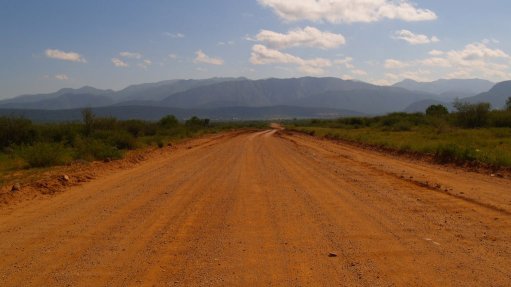Vulindlela 2.0, green industrialisation, infrastructure at centre of GNU’s growth vision
A second round of economic reforms under Operation Vulindlela, together with green industrialisation and scaled-up infrastructure development have been placed at the centre of the Government of National Unity’s (GNU’s) agenda for driving inclusive growth and job creation, which President Cyril Ramaphosa outlined in his opening of Parliament address on Thursday night.
Speaking 50 days after highly competitive elections where no single party secured an outright majority and days after the new members of the expanded executive met at a Cabinet lekgotla to agree on priorities for a GNU that includes ten political parties, Ramaphosa announced that inclusive economic growth had been placed at “the top of the national agenda”.
“The Government of National Unity will pursue every action that contributes to sustainable, rapid economic growth and remove every obstacle that stands in the way of growth,” he announced, while confirming that the other two priorities agreed were that of reducing poverty and building a capable State.
In outlining his growth vision, Ramaphosa confirmed that a second phase of Operation Vulindlela would be initiated to consolidate reforms already under way in the electricity, freight logistics and water sectors, as well as to facilitate an injection of skills and tourists through visa reform, while also adding new reform priorities.
During the second phase, specific focus would be given to the following areas:
- reforming the local government system and improving the delivery of basic services;
- harnessing digital public infrastructure for growth and inclusion; and
- releasing public land for social housing and redirecting housing policy to enable people to find affordable homes in areas of their choice.
Emphasis was also given in the speech to the issue of growing service delivery backlogs at the municipal level, with the goal of repositioning struggling municipalities and metros as “providers of social services and facilitators of inclusive economic growth”.
“We will ensure that the institutional structure and funding model for local government is fit-for-purpose, and that municipalities are financially and operationally sustainable.
“We will put in place systems to ensure that capable and qualified people are appointed to senior positions in municipalities, and ensure independent regulation and oversight of the appointment process.”
Infrastructure development, green energy and the associated industrial spin-offs, manufacturing, agriculture and tourism were also identified as key growth levers for the coming five years.
“From our largest metros to our deepest rural areas, we have a clear intention to turn our country into a construction site, as roads, bridges, houses, schools, hospitals and clinics are built, as broadband fibre is laid and as new power lines are installed,” Ramaphosa said to enthusiastic applause.
While yet again signalling government’s desire to add value to the country’s minerals ahead of export, Ramaphosa argued that it was also time to “seize the enormous opportunity in renewable energy for inclusive growth”.
“As we undertake a just transition towards renewable energy, South Africa must create a green manufacturing sector centred on the export of green hydrogen and associated products, electric vehicles and renewable-energy components.”
He also announced that the country’s sector masterplans would be reviewed and indicated that the intention of the GNU would be to “pursue a smart industrial policy that focuses on the competitiveness of our economy, and that incentivises businesses to expand our exports and create jobs”.
Reducing red tape was another priority area, with departments and public entities having been directed to reduce the undue regulatory burdens that hold back businesses, especially small firms, which “hold the greatest potential for inclusive growth and job creation”.
Ramaphosa also stressed that the GNU would continue to pursue a sustainable macroeconomic policy and address high debt levels.
“We are firmly committed to steadily reducing the cost of servicing our debt so that we can redirect funds towards other critical social and economic needs.”
Article Enquiry
Email Article
Save Article
Feedback
To advertise email advertising@creamermedia.co.za or click here
Announcements
What's On
Subscribe to improve your user experience...
Option 1 (equivalent of R125 a month):
Receive a weekly copy of Creamer Media's Engineering News & Mining Weekly magazine
(print copy for those in South Africa and e-magazine for those outside of South Africa)
Receive daily email newsletters
Access to full search results
Access archive of magazine back copies
Access to Projects in Progress
Access to ONE Research Report of your choice in PDF format
Option 2 (equivalent of R375 a month):
All benefits from Option 1
PLUS
Access to Creamer Media's Research Channel Africa for ALL Research Reports, in PDF format, on various industrial and mining sectors
including Electricity; Water; Energy Transition; Hydrogen; Roads, Rail and Ports; Coal; Gold; Platinum; Battery Metals; etc.
Already a subscriber?
Forgotten your password?
Receive weekly copy of Creamer Media's Engineering News & Mining Weekly magazine (print copy for those in South Africa and e-magazine for those outside of South Africa)
➕
Recieve daily email newsletters
➕
Access to full search results
➕
Access archive of magazine back copies
➕
Access to Projects in Progress
➕
Access to ONE Research Report of your choice in PDF format
RESEARCH CHANNEL AFRICA
R4500 (equivalent of R375 a month)
SUBSCRIBEAll benefits from Option 1
➕
Access to Creamer Media's Research Channel Africa for ALL Research Reports on various industrial and mining sectors, in PDF format, including on:
Electricity
➕
Water
➕
Energy Transition
➕
Hydrogen
➕
Roads, Rail and Ports
➕
Coal
➕
Gold
➕
Platinum
➕
Battery Metals
➕
etc.
Receive all benefits from Option 1 or Option 2 delivered to numerous people at your company
➕
Multiple User names and Passwords for simultaneous log-ins
➕
Intranet integration access to all in your organisation





















